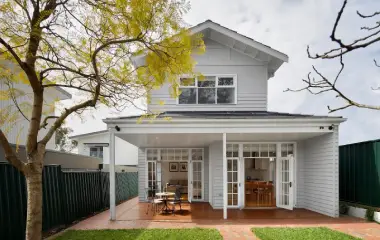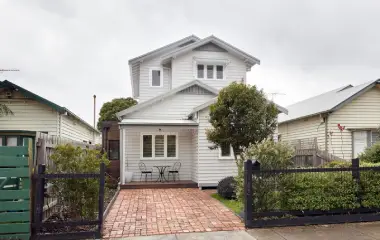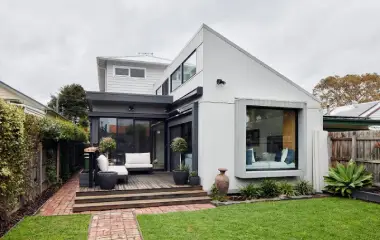Have you ever wondered if a small home extension is worth the investment? Adding just a little more space—perhaps a new bedroom, a home office, or a cosy living area—can seem like the perfect solution. However, while small extensions may appear cost-effective, the reality can often be more complex for homeowners.
Hidden costs such as the challenge of integrating new spaces into existing structures, to managing building permits can force small home extensions to quickly become expensive. Larger extensions often provide greater value for money, offering additional functionality, a higher return on investment, and long-term benefits for your family or lifestyle.
In this blog, we’ll explore the challenges of small extensions, discuss when they are worthwhile, and highlight why larger renovations might be the smarter choice. Whether you’re considering a simple ground floor extension or an expansive second story addition, this guide will help you decide the most cost-effective way to extend your home.
Watch this video where Supa Group’s building team explains when a small extension is worthwhile — and when it makes more sense to think bigger
Small house extensions costs
When it comes to home extensions, it’s easy to assume that smaller equals cheaper. But the reality is far more complicated. Small extensions may seem budget-friendly on the surface, but they come with a fixed build cost that doesn’t scale down significantly with size. This often makes small projects less cost-effective than you might expect.
The hidden costs of structural changes
Even the smallest projects come with significant expenses.
Fixed costs
No matter the size of your extension, you’ll need to cover council permits, engineering reports, and project management. These costs can quickly add up.
Labour Costs
Contrary to what many assume, labour costs don’t always scale down proportionately with the size of a renovation. Smaller jobs often come with disproportionately high labour rates, as trades need to make the work financially viable. In fact, it can be surprisingly difficult to find quality tradespeople willing to take on small-scale projects at all. By committing to a more substantial renovation, you’re more likely to secure reliable trades at a better value for money and make the most of their time on site.
Structural challenges
Small extensions often involve integrating new spaces with existing structures, which can be complex and costly.
Sometimes, spending more on a larger project can actually be more cost-effective in the long run. Check out our blog “How affordable are house extensions?” to learn more.
When is a small extension worthwhile?
Small home extensions can be an excellent choice in certain situations, particularly when they meet specific needs without overextending your budget. While not every small project offers the best return on investment, some scenarios make perfect sense—especially for homeowners in Melbourne looking for cost-effective house extensions.
Ideal scenarios for small extensions
A small extension might be the right choice if you’re looking to:
- Add a home office for remote work: With more people working from home, creating a quiet, functional workspace separate from your personal life can significantly improve day-to-day life.
- Create a small nursery for a growing family: A modest extension could provide the extra room you need without undertaking a large renovation.
- Expand a kitchen or living area: Opening up a cramped kitchen or extending your living space can enhance both functionality and aesthetics without requiring structural changes.
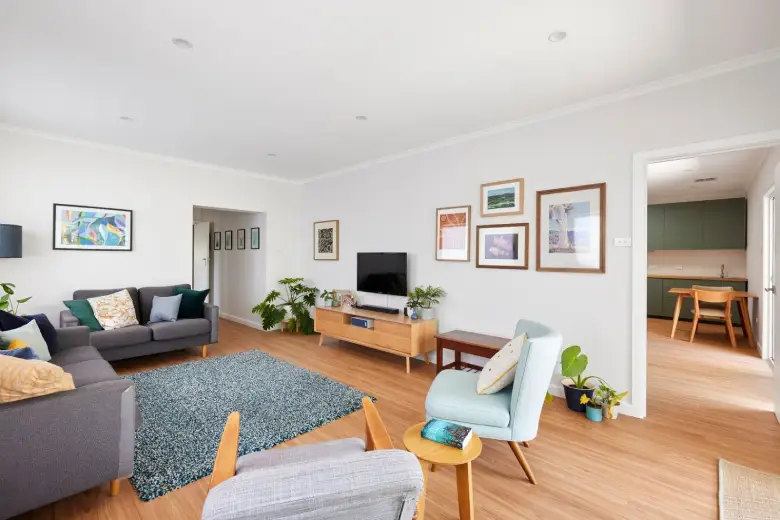
How to decide what type of extension is right for you
Ask yourself the following questions before starting a small extension:
- Does the project solve a specific need? For example, will it improve your home’s functionality or accommodate family lifestyle changes?
- Will the cost justify the added space or functionality? Consider whether the extension will add value to your home or simply address a short-term requirement.
- Do site constraints allow for a large extension, or is a smaller extension the only viable option? Is space available in the site to extend outwards? If so, it is possible to extend upwards.
Small home extensions in Melbourne: Trends and considerations
In Melbourne, small home extensions are often used to adapt existing homes to urban living. With space at a premium, many homeowners opt for compact designs that maximise functionality while adhering to local building regulations. However, even small projects must meet strict council requirements, which can impact timelines and costs.
Small extensions can be worthwhile when they solve a specific need and align with your budget. However, it is crucial to weigh the long-term value and ensure the investment enhances your home’s functionality and appeal.
Why larger extensions are often more cost-effective
When it comes to home extensions, bigger can often be better—not just for the added space but also for the value it brings. Larger projects benefit from economies of scale, meaning the cost per square metre is often lower than smaller extensions. This makes them a smarter investment, especially when you’re planning significant changes to your home.
Key benefits of larger extensions
Reduced Cost Per Square Metre
- Larger projects spread fixed costs—like permits, design fees, and project management—across a bigger footprint, making each square metre more affordable.
- For example, while a small extension might cost $3,500 per square metre, a larger extension could cost as little as $2,200 per square metre.
Greater Design Flexibility
Larger extensions allow for multiple functional spaces, such as:
- Adding extra bedrooms, bathrooms and or multipurpose rooms to accommodate a growing family.
- Creating open-plan living areas perfect for entertaining.
- Including dedicated home offices or hobby rooms to enhance liveability.
Higher Return on Investment (ROI)
- A larger extension improves your home’s functionality and significantly increases its market value.
- In Melbourne, where modernised and spacious homes are in high demand, a larger extension can give your property a competitive edge.
Value-adding ideas for larger extensions
Here are some popular ways homeowners in Melbourne maximise the benefits of larger projects:
- Open-plan living spaces: Seamlessly combine kitchen, dining, and living areas to create a modern, airy feel.
- Multiple bedrooms or a second storey: Perfect for growing families or adding guest accommodation.
- Spacious ground-floor extensions: Add a family room or additional entertaining area to make your home the centre of social gatherings.

Why Melbourne’s housing market favours larger extensions
Melbourne homeowners are increasingly prioritising space and functionality in their homes. With property prices rising, extending rather than moving has become an attractive option. Larger extensions align with the city’s demand for modernised, family-friendly homes, making them a cost-effective choice in the long run.
While a larger extension requires more upfront investment, the benefits outweigh the costs. From reducing cost per square metre to adding significant value to your property, larger projects provide flexibility and long-term rewards.
Is a home extension the most cost-effective option?
When considering a home extension, it’s important to ask: is this the best solution for your needs? While adding extra space is often the goal, small extensions may not always be the most practical or cost-effective choice. Exploring alternatives can help you make a decision that delivers better value for your investment. Learn more in our blog about whether you should renovate or rebuild your home.
Practical tips for finding the best option
Consult with a builder
Discuss your goals with a professional to determine the most cost-effective way to extend or improve your home. Builders can provide insights into:
- Which options will add the most value to your property?
- How to manage costs effectively.
Factor in moving costs vs. extending
- Moving involves expenses like stamp duty, real estate fees, and moving services, which can be upwards of sixty to hundreds of thousands of dollars.
- Compare this with the cost of extending your current home, which allows you to stay in a location you love while enhancing its functionality.
A home extension can be a fantastic solution, but it’s not always the only option. Renovating existing spaces or investing in a larger extension might offer greater value and functionality. By consulting with experienced builders like Supa Group, you can find the most cost-effective approach to creating the home you’ve always wanted.
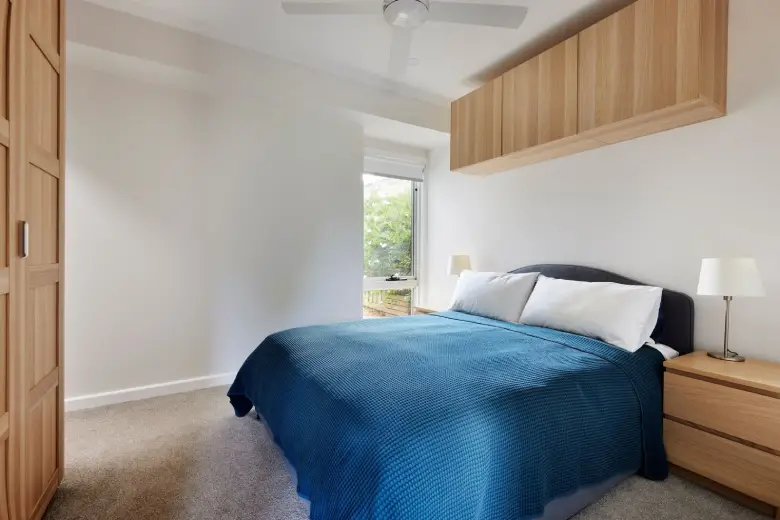
Making the right choice
Choosing the right extension for your home is about more than just adding space—it’s about ensuring the investment delivers long-term value and functionality. While small extensions can be valuable for addressing specific needs, they may not always be the most cost-effective option, especially when compared to larger projects that maximise economies of scale and return on investment.
Evaluating your goals, budget, and potential impact on your home’s liveability and value is crucial to making the best decision. This is where working with experienced builders, like Supa Group, makes all the difference. From understanding the true costs of small extensions to exploring alternative solutions, we provide expert advice to guide you through our building process.
Contact Supa Group today to discuss how we can help you build a cost-effective house extension that adds real value to your home.








